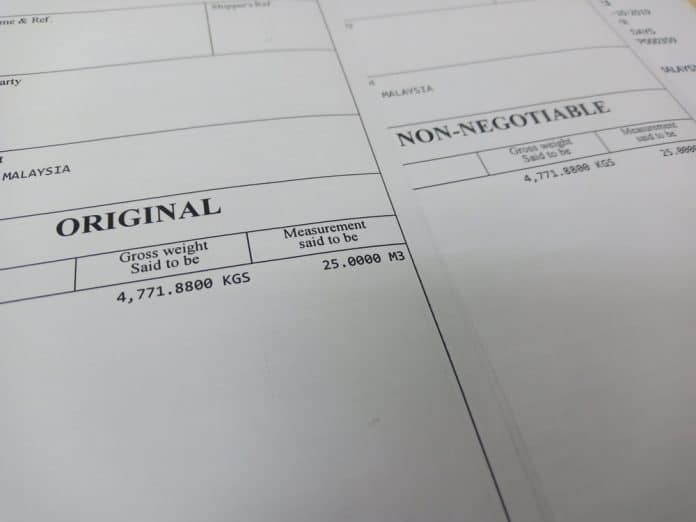The global shipping industry heavily relies on accurate and timely documentation, such as the Bill of Lading (BOL), to transport an astounding 11 billion tons of cargo annually.
However, supply chain disruptions caused by document delays or loss can have severe financial consequences for businesses. According to a 2020 analysis by the Insurance Information Institute, these disruptions cost firms an average of $1.45 million per event. Additionally, document fraud and tampering account for 11% of reported occupational fraud cases worldwide, underscoring the importance of preserving the integrity and authenticity of business transactions through secure and traceable documentation like the Bill of Lading.
The Importance of the Bill of Lading (BOL)
The Bill of Lading serves as a crucial document in international trade, providing evidence of the agreement between the shipper and the carrier. It ensures the integrity and authenticity of business transactions, safeguarding against fraudulent acts. The Association of Certified Fraud Examiners highlights document fraud and tampering as significant challenges in international trade, emphasizing the need for secure and traceable documentation.
Repercussions of a Lost Bill of Lading (BOL)
If a Bill of Lading is misplaced or lost during transportation by a courier company in the U.S., it can result in severe risks and costs, including:
1. Processing and Delivery Delays:
Exporters and importers may experience delays in processing and delivery, impacting the supply chain. These delays can lead to missed sales opportunities and increased administrative work. According to a survey by the Global Supply Chain Institute, 59% of companies reported that supply chain disruptions resulted in increased administrative work.
2. Legal Issues and Lawsuits:
The loss of the Bill of Lading can give rise to legal issues and potential lawsuits. Legal disputes may occur regarding ownership, liability, or breach of contract, leading to additional costs and potential reputational damage.
3. Financial Losses:
Supply chain disruptions caused by a lost Bill of Lading can result in significant financial losses. According to a study by the Business Continuity Institute and Zurich Insurance Group, 85% of companies experienced a financial impact from supply chain disruptions in 2020, with an average cost of $1.9 million per incident.
Statistics and Examples
1. Financial Implications:
According to a report by the Global Supply Chain Institute, supply chain disruptions can cost companies an average of 9-11% of their annual revenues. This includes costs associated with lost sales, increased operational expenses, and reputational damage.
2. Cargo Theft:
In the U.S., cargo theft incidents continue to be a significant concern. According to CargoNet’s 2020 US Cargo Theft Annual Report, the average cargo theft value in the U.S. was $166,639 per incident, resulting in substantial financial losses for businesses.
To navigate a lost Bill of Lading situation with a courier company in the U.S., companies engaged in international trade must take immediate action to minimize disruptions and protect their interests.
Contacting the courier company, seeking legal counsel, and reviewing insurance coverage are crucial steps. By understanding the statistical significance of supply chain disruptions and the potential risks and costs involved, businesses can adopt proactive measures and comprehensive risk management strategies to preserve the integrity of commercial transactions. Through these actions, they can mitigate potential losses, maintain the smooth flow of international trade, and safeguard their financial and operational interests.




